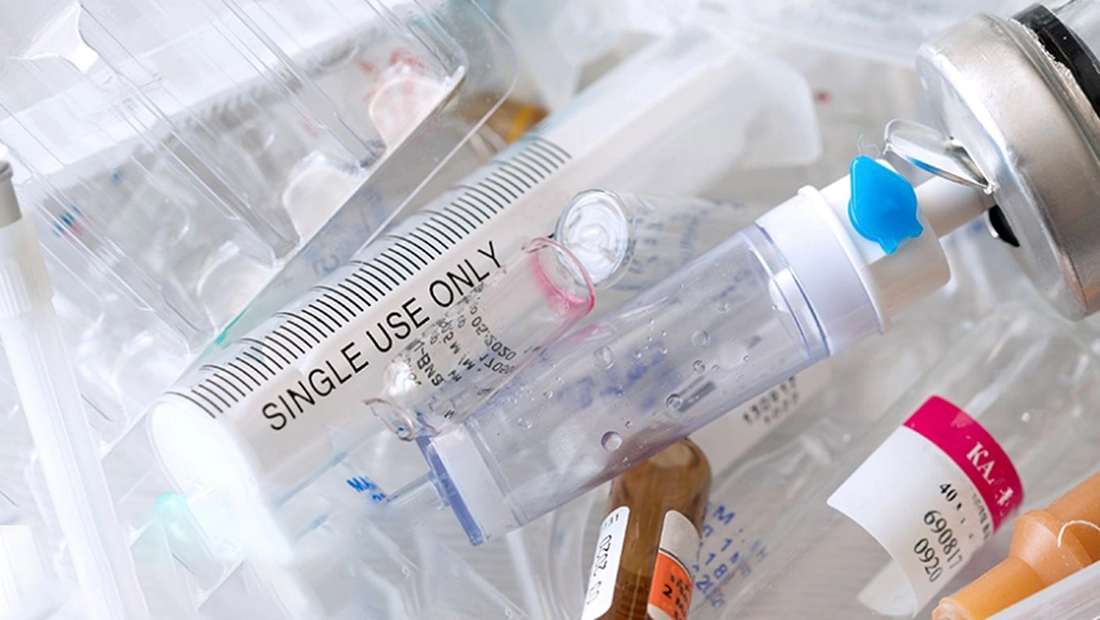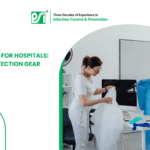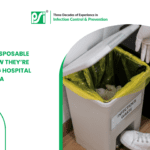The Environmental Consequences of Single-Use Items: PSIdispo Assesses The Impact
In today’s world, single-use items are found in all spheres of human existence, starting from food packaging to healthcare waste. They have serious environmental consequences and are among the major sources of pollution and resource exhaustion. PSIdispo is dedicated to measuring this burden, as its results allow an understanding of the influence that single-use items have on the ecosystems and policy changes needed to replace them with sustainable options.
Key Findings by PSIdispo

- Pollution: All single-use commodities, including healthcare waste, largely contribute to land and water pollution. The environmental research conducted by PSIdispo shows that “8 million tonnes of plastic are tossed into the sea every year”. An outstandingly large portion of this plastic is composed of healthcare waste. Such pollution greatly threatens the life of the marine environment; thus, developing sustainable substitutes and more efficient waste disposal options is a high priority.
- Resource Depletion: Single-use items are manufactured using a lot of natural resources, such as water, oil, minerals, etc. Creating them means the depletion of scarce and necessary resources and the subsequent environmental consequences, which have already been shown in PSIdispo reports. The document also emphasizes the need to quickly change production formats and cut the release of disposable materials.
- Carbon Footprint: The production and disposal of disposable items result in a substantial carbon footprint, exacerbating climate change. PSIdispo’s analysis reveals that these items contribute significantly to greenhouse gas emissions, highlighting the urgent need for reducing disposable items in favor of more sustainable alternatives to mitigate their environmental impact.
Specific Impacts on Ecosystems
- Marine Life: Many disposable items find their way into the oceans, where they inflict extreme harm to marine life through ingestion and entanglement. According to the results of PSIdispo, most of the disposable items ingested by marine animals are mistaken for aliments, resulting in injuries, death, and disruption of the entire food chain, emphasizing the importance of reduced dependence on disposable items.
- Soil Degradation: Apart from this, the inappropriate disposal of single-use items, especially plastic ones, contaminated the soil and reduced its fertility. According to PSIdispo, the chemicals of such items infiltrate the ground and deteriorate microbial activity and nutrient flux. It compromises the growth of plants and the health of the soil, suggesting that other proper ways of waste, and eco-friendly substitutes should be explored.
- Wildlife Hazards: Furthermore, land animals consume or get caught in disposable items, leading to physical damage or death. According to PSIdispo, for example, there were many incidents involving the consumption of plastics and other disposable items by wild animals. On the one hand, it is critical to eliminate disposable items to protect terrestrial ecosystems. On the other hand, safety is equally important.
Case Studies and Examples
- Plastic Bags
- Ingestion: Wildlife often mistake plastic bags for food, leading to ingestion that causes internal blockages, malnutrition, and death.
- Entanglement: Animals can become entangled in plastic bags, leading to injury, impaired movement, and drowning.
- Habitat Disruption: Single-use items like plastic bags litter natural habitats, disrupting ecosystems and making environments inhospitable for wildlife.
- Chemical Pollution: The decomposition of plastic bags releases toxic chemicals into soil and water, harming plants and animals.
- Food Chain Contamination: Microplastics from degraded single-use items enter the food chain, affecting the health of various species, including humans.
- Straws and Cutlery
- Plastic Bags: Cause ingestion and entanglement hazards for wildlife.
- Plastic Straws: Harm marine life through ingestion and blockages.
- Single-Use Cutlery: Contributes to land and ocean pollution.
- Disposable Cups: Lead to significant waste and resource depletion.
- Plastic Bottles: Major source of ocean plastic pollution.
- Packaging Materials: Create large amounts of non-biodegradable waste.
Alternatives and Solutions
- Reusable Items: Use reusable bags, bottles, and cutlery to reduce single-use waste.
- Biodegradable Options: Opt for biodegradable and compostable alternatives to reduce environmental impact.
- Policy and Regulation: Support policies like plastic bans and taxes that reduce single-use item consumption.
Actions for Individuals
- Reduce and Reuse
- Carry a reusable water bottle and coffee cup.
- Bring your own shopping bags.
- Use cloth napkins instead of paper ones.
- Avoid using plastic straws and cutlery.
- Buy in bulk to reduce packaging waste.
- Choose products with minimal or biodegradable packaging.
- Opt for reusable containers for food storage and takeout.
- Proper Disposal
- Learn which materials are recyclable in your area.
- Rinse containers before recycling to prevent contamination.
- Check local guidelines for proper disposal of hazardous items.
- Donate or sell items that can be reused.
- Compost organic waste to reduce landfill waste.
- Avoid littering and dispose of waste responsibly.
- Support Eco-Friendly Brands
- Look for certifications like Fair Trade, Rainforest Alliance, or B Corp.
- Research a company’s sustainability practices and initiatives.
- Support brands that use recycled materials or have a take-back program.
- Choose products with minimal packaging or packaging made from recycled materials.
- Share your support for sustainable brands on social media to raise awareness.
Conclusion
Single-use items come with devastating impacts on our environment through pollution, depletion of resources, and adverse impacts on wildlife. For a solution to be attained, we have to start making the right choices. Get in touch with Plasti Surge Industries Pvt. Ltd. for more information on how to counter single-use waste. In our petition to make a difference, let’s choose to go against throw-aways, buy from green companies, and push for laws that prevent further damage to the earth. Be a part of the difference you want to see today!



